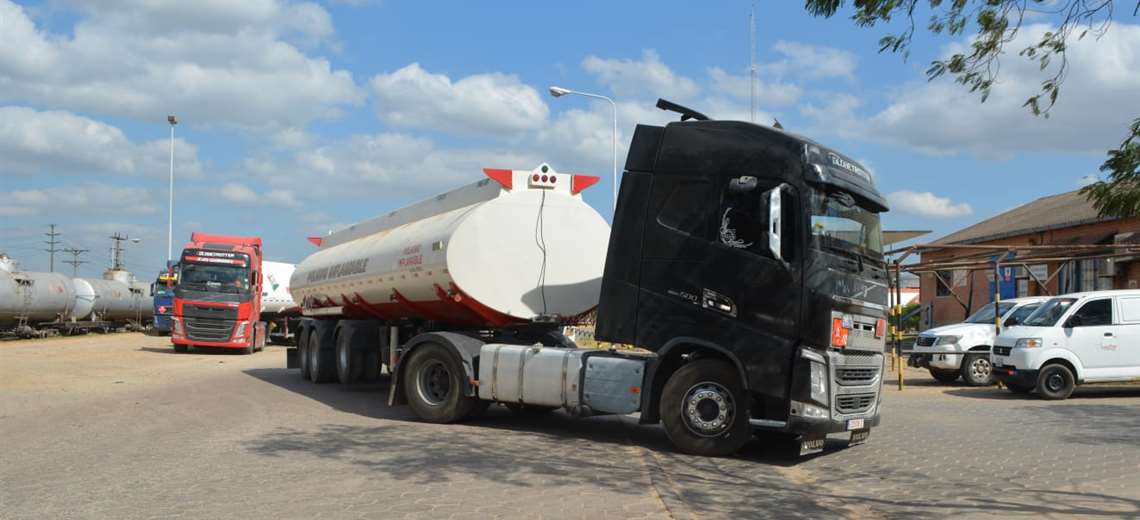
April 16, 2023, 7:32 AM
April 16, 2023, 7:32 AM
The Government determined that the tanker trucks that transport fuels must have a global positioning system (GPS) for the National Hydrocarbons Agency (ANH) to monitor these vehicles. This measure was already instructed in 2012, but it was not completed and was finally scrapped in 2018.
“The ANH must register and monitor the tankers that remove and transport gasoline and/or diesel, authorized by the General Directorate of Controlled Substances (DGSC), from liquid hydrocarbon storage plants and/or liquid fuel service stations. until the final destination”, indicates Supreme Decree 4910, approved on April 12.
In June 2012, the then executive director of the National Hydrocarbons Agency, Gary Medrano, announced that the free installation of GPS equipment had begun. in the tankers, to prevent the diversion of diesel and gasoline to contraband.
According to carriers who requested the reservation of their name, this process was followed through a regulation that indicated that the ANH was responsible for the installation, maintenance and replacement of GPS devicesalthough time then the regulator began to force the owners of those vehicles to pay for the replacement of those equipment since their maintenance is done with a single company. If maintenance was not met, they were restricted from purchasing fuel through the B-SISA system.
The drivers were in agreement with the control, but not with covering the cost that this impliedhence, protected by the same resolution of the regulator, they managed to have that obligation repealed.
In that first attempt at the satellite tracking project, “this equipment was installed in almost 60% of the units. Then the process was stopped without any explanation. Since then, no more GPS has been installed until four months ago, when a pilot test for volunteers began in La Paz and Cochabamba,” said one of the drivers.
Decree 4910 establishes that, for the monitoring of the National Hydrocarbons Agency, “The tanks must have, as a requirement, a global positioning equipment, whose characteristics and registration will be regulated” by the regulator. “The monitoring system will be assumed by the ANH”. adds.
Within hours of the approval of this norm, the authorities of the central level informed of an operation that shows that the diversion of tens of thousands of liters of diesel and gasoline in tanks occurs in the country.
Through research, intelligence information and GPS devices “It has been possible to intercept two tankers that were being diverted for smuggling”, reported last Friday the executive director of the ANH, Germán Jiménez. “It has been possible to seize 48,000 liters that are going to be destined to Yacimientos Petrolíferos Fiscales Bolivianos (YPFB),” he specified.
The trucks, each with a capacity of 24,000 liters, were on a property near the storage plant of the state oil company in Senkata (El Alto). In that property, they also found 10 storage tanks of between 5,000 and 10,000 liters, 30 barrels of 200 liters, 12 barrels of 120 liters and everything necessary to remove the fuel from the tank to smaller containers.
The Special Force to Fight Crime apprehended three people and “is doing the corresponding investigations”, said the director of the ANH, an institution that will sue those detained for illicit enrichment affecting the State and for illegal storage.
One of the tanks was destined for the León service station, which is privately owned and is located in Yucumo (Beni). The tank of this truck was empty and it is presumed that the contents had already been diverted to contraband. The other tanker still had 24,000 liters of fuel and was destined for a pump in El Alto.
This operation was carried out jointly between the ANH and the Strategic Operational Command (CEO).
Defense Minister Edmundo Novillo said last Friday that a rigorous control will be made to the cisterns, to the transportation of fuel that they carry out, to the pumps and the sale that takes place at these supply points, particularly to the drummers, “who apparently collect the diesel and gasoline.”
Sources from the sector who requested the reservation of their name questioned the role of state regulatory institutions in these casessince the transport of diesel and gasoline is very controlled.
First, the producer that requires large volumes of fuel, whether for agriculture or mining, must apply to the General Directorate of Controlled Substances and the National Hydrocarbons Agency for permits for the acquisition of fuels in pumps or in fuel plants. storage.
This request must justify in which activity and in which machinery certain volumes of diesel or gasoline will be used, which must be corroborated with on-site inspections of the requesting productive unit.
Once those permissions are granted, buyers hire a tanker truck that must also request a waybill from the DGSC and process a purchase authorization at YPFB Comercial.
With the permits, invoices and delivery slips, the tankers go to the YPFB Logístic plants.a, where it is verified that all the documentation is correct. If there is an error in the papers, the state oil company rejects the fuel load.
At the pumps, likewise, to make the purchase, the tankers present the DGSC route sheet, the ANH authorization and the payment invoice to YPFB.
“But in Bolivia everything can be solved in different ways. There are ghost mining cooperatives, for example, that do not even have a wheelbarrow, but have high quotas (of fuel).. There you have to see what is failing in the DGSC and the ANH,” said one of the sources.
“The problem is not with us. The sector collects the product with documentation and takes it to where the route sheet says. If fuel is coming out of fields without documents, we are not to blame. There must be someone else who gives the order” , questioned one of the drivers.
















